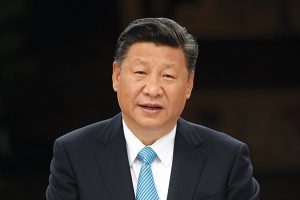Bloomberg
Chinese President Xi Jinping expressed zero tolerance for anything that could undermine ethnic harmony in the world’s No. 2 economy, a sign he’s sticking to assimilation policies that have led to unrest and allegations of human rights abuses.
“Only when all ethnic groups live in unity and harmony can there be a prosperous country, a stable society and a happy people,†the 68-year-old leader told a delegation from Inner Mongolia, which in the past has seen protests over school policies for languages used in schooling.
“Without ethnic unity and harmony, the country would decline, society would be destabilised and the people would suffer,†Xi said, according to a summary of the National People’s Congress event provided by the official Xinhua News Agency.
The nation’s legislature and top political advisory body are holding their annual meetings this week in Beijing.
China deploys a range of policies in certain areas, including curtailing religious practices and discouraging ethnic dress, to absorb its various minority groups into one national identity. That drive has drawn the most attention in the far western region of Xinjiang, where foreign governments and human rights groups say Beijing is using forced labor and genocide to wipe out minorities including Muslim Uyghurs.
Chinese officials call those accusations “the lie of the century,†saying they are providing job training and building infrastructure that will elevate the region out of poverty.
Last month, the Asian nation used the opening ceremony of the Beijing Winter Olympics to send a message of defiance against the West’s charges by having members of all 56 government-recognized ethnicities, including Han Chinese, pass the nation’s flag to each other in a display of harmony. Still, there are occasionally signs that minorities are frustrated with Beijing’s assimilation policies. In 2020, a decision to switch the language used in schools to Chinese from Mongolian set off protests and student boycotts, and videos posted on YouTube showed students chanting “Let us Mongolians strive to defend our Mongolian culture.†Such clips were unavailable in China, where signs of ethnic unrest are among the many topics that can run afoul of censors.
At the time of the protests, a scholar at state-backed Chinese Academy of Social Sciences wrote in a social media post that the changes to curriculum in the northern region of China bordering Mongolia were prompted by a directive from Xi himself.
 The Gulf Time Newspaper One of the finest business newspapers in the UAE brought to you by our professional writers and editors.
The Gulf Time Newspaper One of the finest business newspapers in the UAE brought to you by our professional writers and editors.
